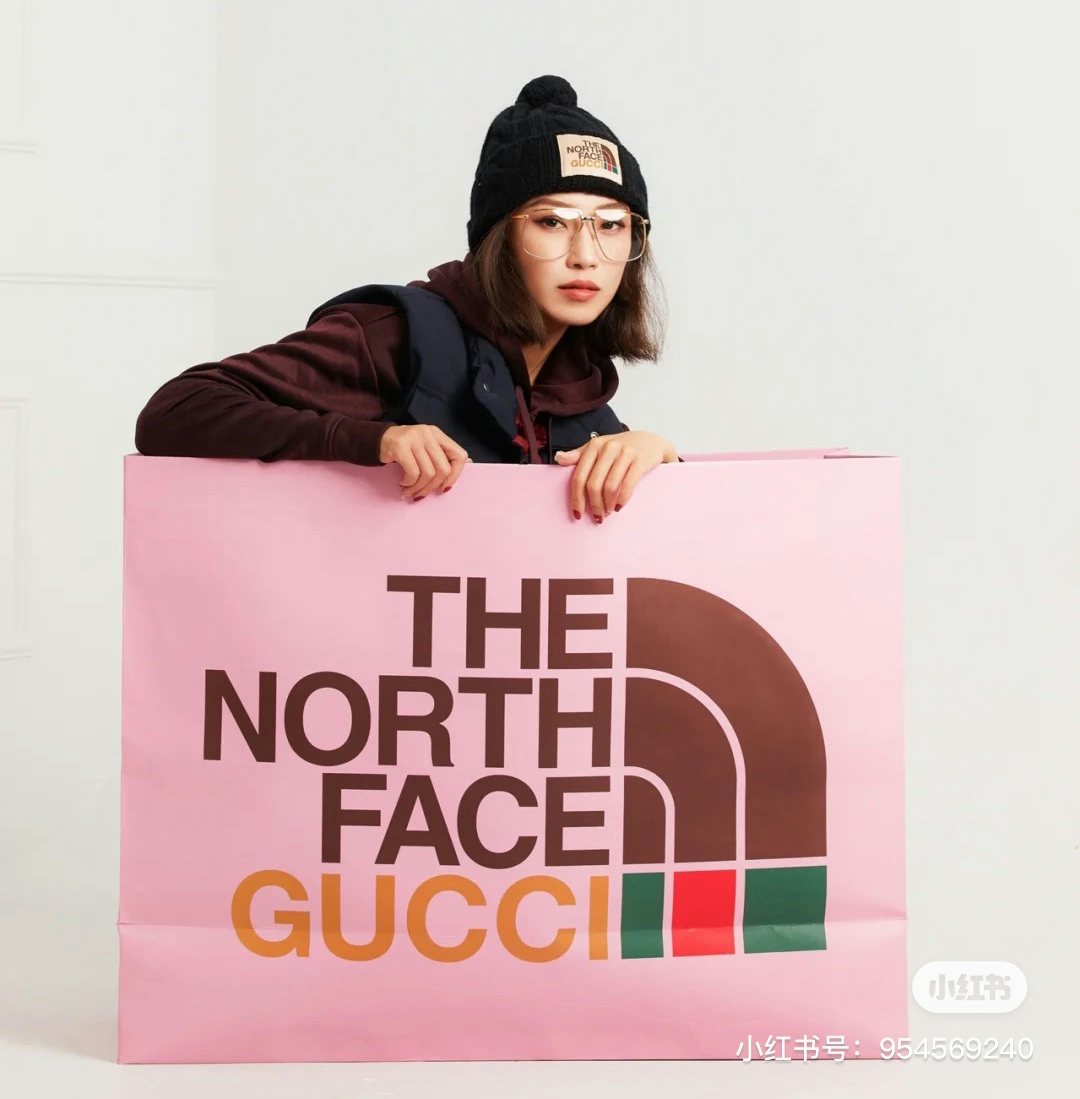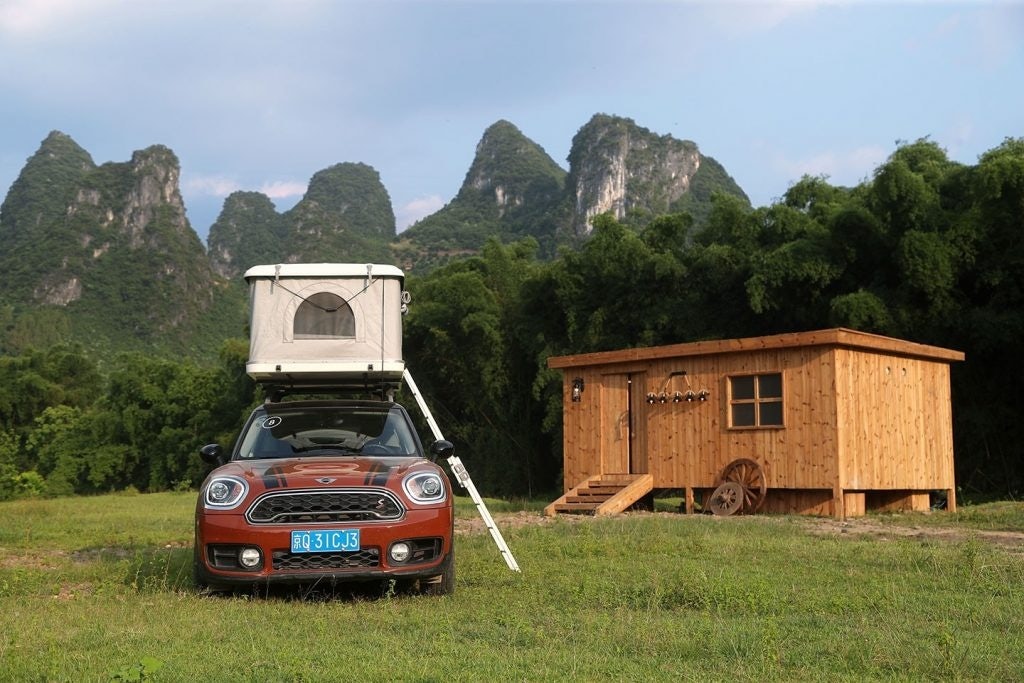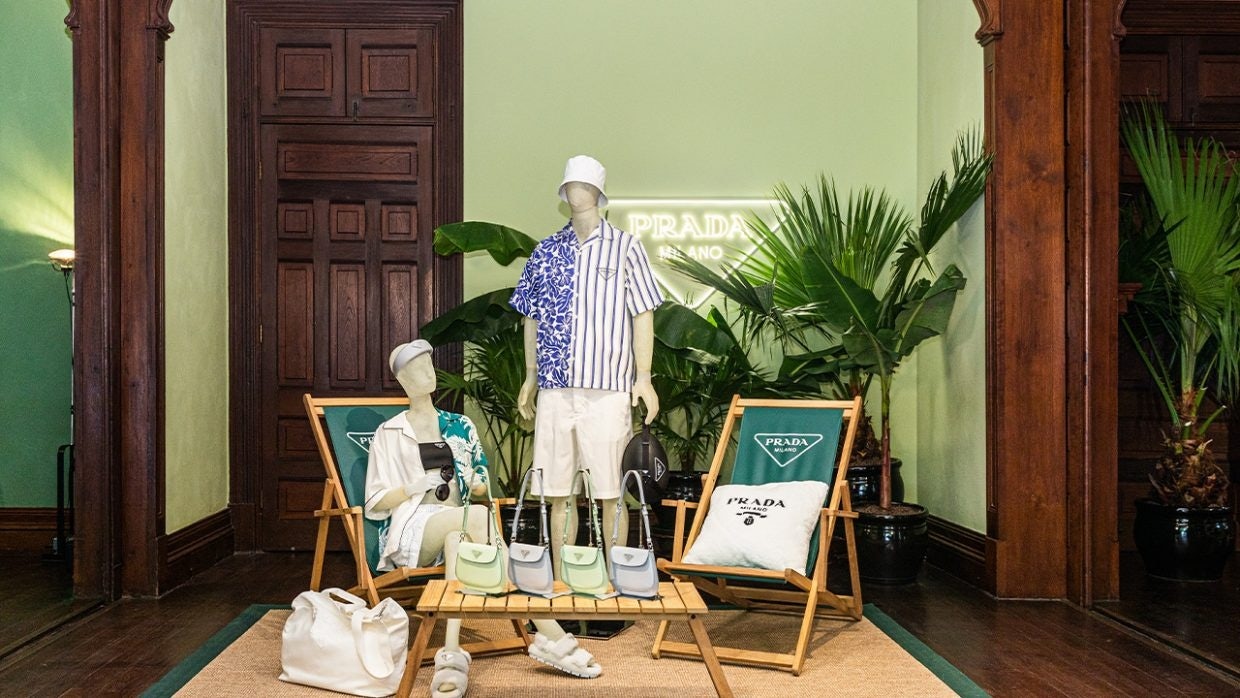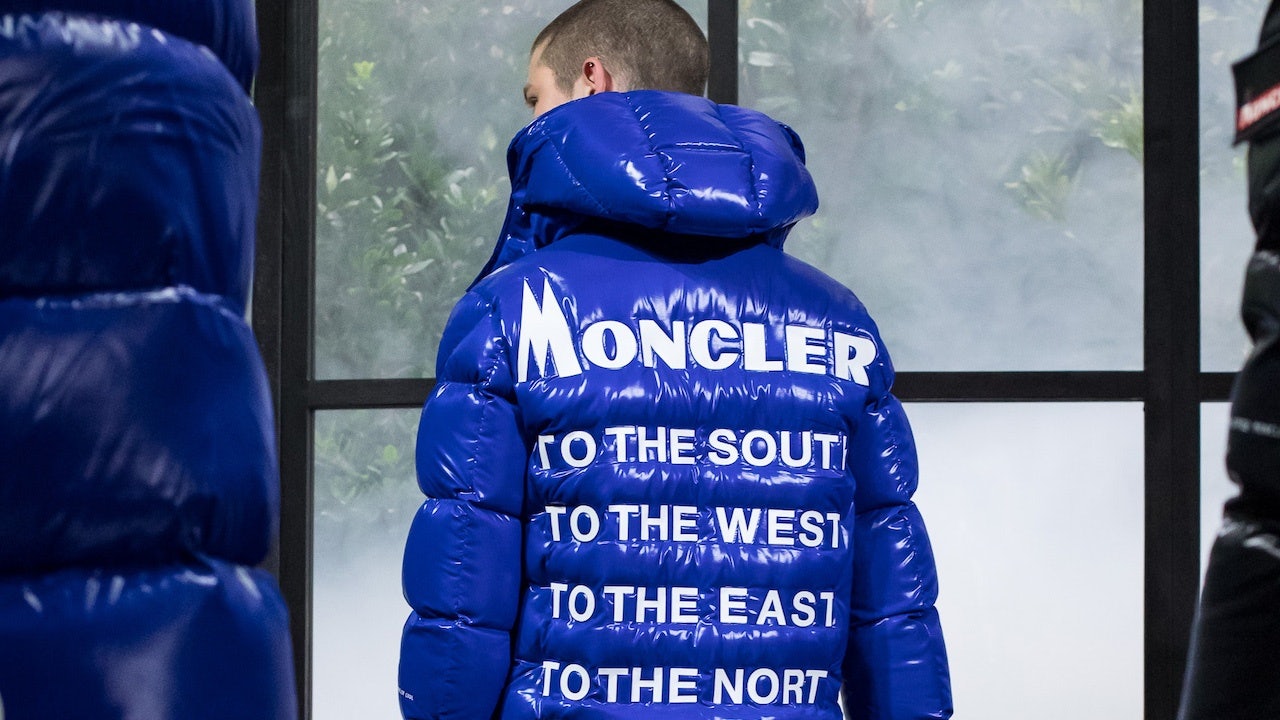Key Takeaways:#
- Chinese millennial and Gen Z interest in slowing down and reconnecting with nature is fueling demand for high-end outdoor brands, collections, and collaborations.
- During this year’s 618 shopping festival, glamping was one of the fastest expanding sports subcategories for Alibaba marketplaces, growing by 130 percent year-on-year.
- Luxury brands can leverage the outdoor trend by working with nature-minded influencers, offering unique experiences, and tailoring collections to young consumers interested in “slow living,” camping, gardening, and hiking.
From collaborations like The North Face x Gucci, Dior x Descente, and Jil Sander x Arc’teryx to Moncler Genius drops and upcycled Eye Loewe Nature collections, luxury brands have leapt on consumer interest in the great outdoors in recent years. Led by winter brands like Moncler, which turned high-end down jackets into a hot commodity via collaborations with the likes of Rick Owens, Matthew M. Williams, and Hiroshi Fujiwara, others are rushing to catch up to demand for luxury parkas, hiking boots, and high-tech materials that look as good in the city as they do on the trails.
In China, millennial and Gen Z consumers have been the key drivers of outdoors consumption, especially since the coronavirus pandemic. With large swathes of the population subject to lockdowns in the first part of 2020, and limited opportunities for overseas travel since then, millions of young Chinese have discovered (or rediscovered) nature, primarily in their own country.
This fits into a larger trend both in China and globally. As noted in the recently published Transcendent Retail: APAC report from Jing Daily and Wunderman Thompson Intelligence, the stresses and demands of contemporary Chinese society have pushed a growing number of consumers to seek out more minimalist and purposeful lifestyles. Meanwhile, Beijing’s push to reduce the nation’s carbon footprint and the COVID-19 pandemic have heightened consumer sensitivity towards environmental issues, health, and wellbeing.

Growing interest in the outdoors was one of the top five most influential trends identified by Alibaba at its recent Taobao Maker Festival (TMF), where young attendees were drawn to new products such as a high-tech glamping tent for 20, deluxe barbecue sets, and retro gas lamps. According to Alibaba, glamping was one of the fastest expanding sports subcategories during its recent 618 shopping festival, growing by 130 percent year-on-year. And this is very much a worldwide trend, with a recent report from Grand View Research estimating the global glamping market to be worth $1.88 billion in 2020, with an expected CAGR of 14.1 percent from 2021 to 2028.
Interest in glamping and RVing has been on the rise in China for the past several years, largely among urban consumers who have already traveled extensively around the world and are looking to explore more of their home country. While RV travel in China is decades behind established markets in North America, Europe, and Japan, the domestic industry is catching up quickly, with hundreds of new local companies springing up to meet growing demand for RVs, camping supplies, and accessories. Meanwhile, global auto brands like Mini have responded with “overlanding”-style campaigns like the Nomad Hotel, a set of six customized Countryman vehicles dispatched to Yunnan Province in southwest China last year for a unique glamping experience.
The thriving outdoor trend has led to a notable increase in outdoor lifestyle content in China, with Zhejiang Satellite TV debuting “Star Chaser” (追星星的人) in April, a 12-episode camping-themed reality show that saw celebs like Zhu Yilong and Li Yifeng and a rotating set of guests visit six scenic spots around China. Also in April, iQiyi combined the outdoors and food TV trends with its reality show “I Told the Spring About You” (春日酱), which sent five Gen Z stars (Fei Qiming, Yao Chi, Niu Chao, Hu Chunyang, and Li Mingde) around China to experience the sights and tastes of the country al fresco.

Interest in nature among urban millennial and Gen Z consumers in China is also part and parcel of the country’s “lying flat” (躺平) movement, a reaction in part to the culture of overworking and stress exemplified by the notorious “996” (9 a.m. to 9 p.m., six days a week) work schedule adopted by many local tech companies. As Jing Daily pointed out last month, young Chinese consumers are shifting toward slower lifestyles to rebel against the societal pressures they face to get married and have children, purchase a house, and participate in a culture of overwork and endless striving.
This reaction isn’t limited to China, but rather is part of a broader sentiment shared among global millennials and Gen Z, who are often referred to as the “burnout generation.” Discouraged by a sense that the world is lurching from one crisis to another while suffering from stagnant wages, job losses, and an interminable global pandemic, many young people are eager to escape the rat race. This can entail everything from the extreme (quitting one’s job and embracing the #vanlife philosophy) to the more subtle slacking off at work and doing the bare minimum, epitomized by the Chinese millennial and Gen Z philosophy of “touching fish.” The slower lifestyles embraced by “lying flat” and “touching fish” leave room for more relaxing hobbies, from fishing and gardening to hiking and camping.

Some luxury brands have been quick to infuse aspects of these trends into their Chinese marketing efforts. To promote a new outdoor collection earlier this year, Prada transformed its Rong Zhai cultural space in Shanghai into an indoor camping destination, complete with workshops about gardening and horticulture. Swiss luxury fashion house Bally also jumped on the nature bandwagon for its Spring / Summer 2021 brand film, starring Chinese-French model Estelle Chen.
The key takeaway from the outdoor movement for luxury brands in China is that the trend is yet another opportunity to try new things that can appeal to young consumers. Not everyone who expresses an interest in chill hobbies or spending time in nature will rush to quit their job and live off-grid in a converted van. Millennial and Gen Z demand for high-end brands in China isn’t going to vanish anytime soon — on the contrary, it’s still booming. But a growing interest in the outdoors offers a chance for brands to launch new collections and collaborations that can tie into their work on sustainability, feature a greater variety of celebrities and influencers, and provide innovative nature-centered experiences. This is now as true in China as it is in other major markets, as proven by Gucci’s hotly sought-after collab with The North Face.
Although few of the $3,500 Gucci x North Face tents may ever actually touch down on a campground, young consumers’ fascination with the outdoors and all of the experiences (and limited-edition products) they entail is here to stay. Brands that take this into account by considering a wide range of apparel and accessories that reflect these slower and more deliberate lifestyles stand to benefit the most over the long term.

